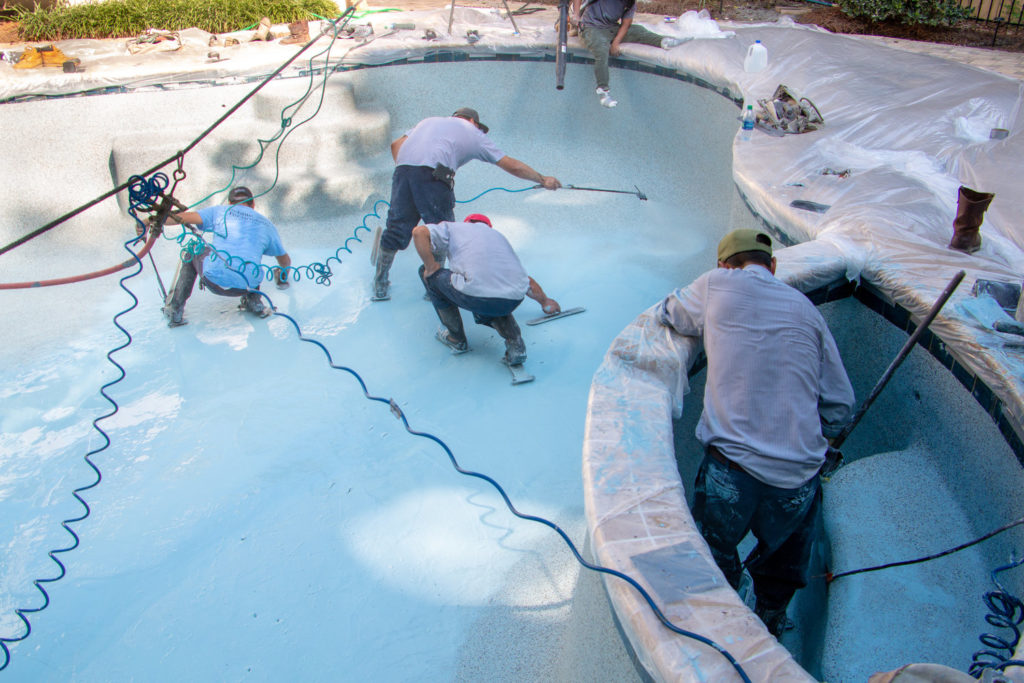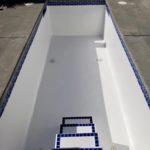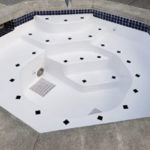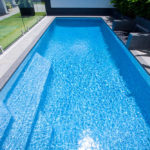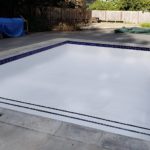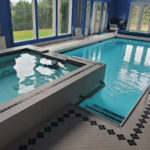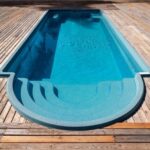
Comparison of Pool Finishes in Las Vegas NV
Pools in Las Vegas NV are the perfect addition to any dream home. It can serve as the Pools are the perfect addition to any dream home. It can serve as the ultimate complementary piece to the rest of your house decors and when done right, will further elevate your abode into an entirely different level.
Achieving this feat will require imagination, creativity and hours of careful planning, Knowing more about pools and what constitutes them certainly won’t hurt either, as it will speed up the entire process and help make sure that the finished product you are getting is exactly what you wanted.
Part of what you will be deciding on is the pool finish. Since your pool will get exposed to different elements aside from chlorine and water itself, selecting the right finish is a must to ensure that it will last for a long time.
There are several finishes to choose from, which are specific not only to your aesthetic of choice or desired form of expression that you wish to achieve but caters to a specific purpose as well.
Three of these finishes are Glasscoat, Swimming Pool Plastering, and Pebble Tec Las Vegas. Let us help you decide which among these is most suitable by providing a comprehensive comparison guide.
Let us make a comparison among the three pool finishes based on specific pool conditions and major touchpoints:
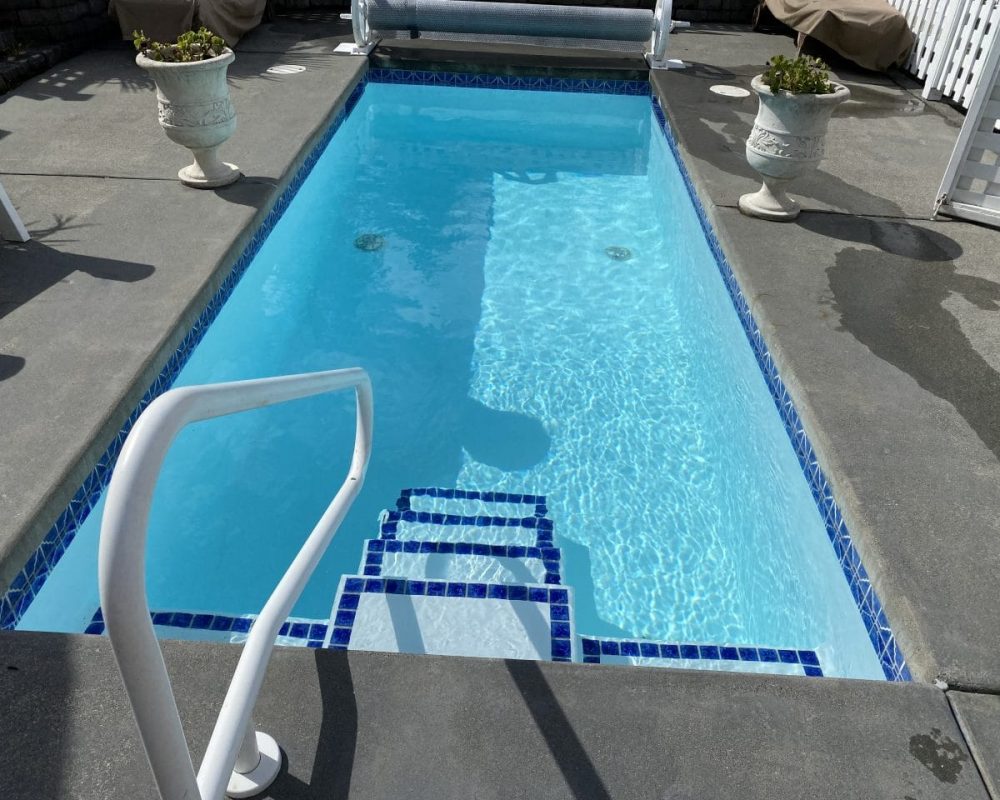
Las Vegas Pools: Glasscoat vs Pool Plastering
Rough Surfaces: Glasscoat is always smooth so you don’t have to worry about getting your feet scratched ever while Pool Plastering gets worn out as time passes. As it wears, its roughness also increases specifically Quartz and pebble plaster.
Structural Cracks: Glasscoat adds structural strength to your pool shell which effectively prevents leaking while with pool plaster, cracks and leaks can be caused by any substantial pool movement.
Blemishes and Stains: Glasscoat is resistant to stains with a surface that can be easily cleaned. Swimming Pool Plastering, on the other hand, offers little resistance to stains and blemishes even if its surface is only recently applied.
Algae Resistance: Owing to its smooth, dense, non-porous surface, Glasscoat prevents algae from adhering which Plaster is unable to do because of its porous surface.
Chemical Demand: Glasscoat makes pool chemicals more efficient because of the noticeable reduction in chemical usage owing to its inert nature while Pool Plastering causes its surface to be reactive because of its high chemical requirement at all times.
Attractiveness: Pool Plastering becomes unsightly once it is stained or deteriorates while Glasscoat is able to maintain its attractive appearance.
Durability: Glasscoat ensures exceptional durability due to its superior corrosion resistance and inert properties compared to Pool Plastering which durability is reduced due to material limitations, not to mention the need to replaster as it often separates from the original surface owing to poor adhesion.
Water Chemistry: Swimming Pool Plastering surface is easily compromised because it is very sensitive to incorrect water chemistry compared to Glasscoat which inert surface is less-sensitive to out-of-balance water chemistry resulting in a very forgiving surface.
Warranty: Very limited warranty is being offered for Pool Plastering because of material limitations and is usually only applicable to the workmanship while a more comprehensive one is applicable for Glasscoat as it is applied by specialists.
Life Expectancy: Glasscoat far exceeds the service life of Plaster, with a service life expectancy of 20 years as compared to only 5-7 years for Pool Plaster depending on a number of factors including water chemistry, maintenance, plaster mix, and application technique.
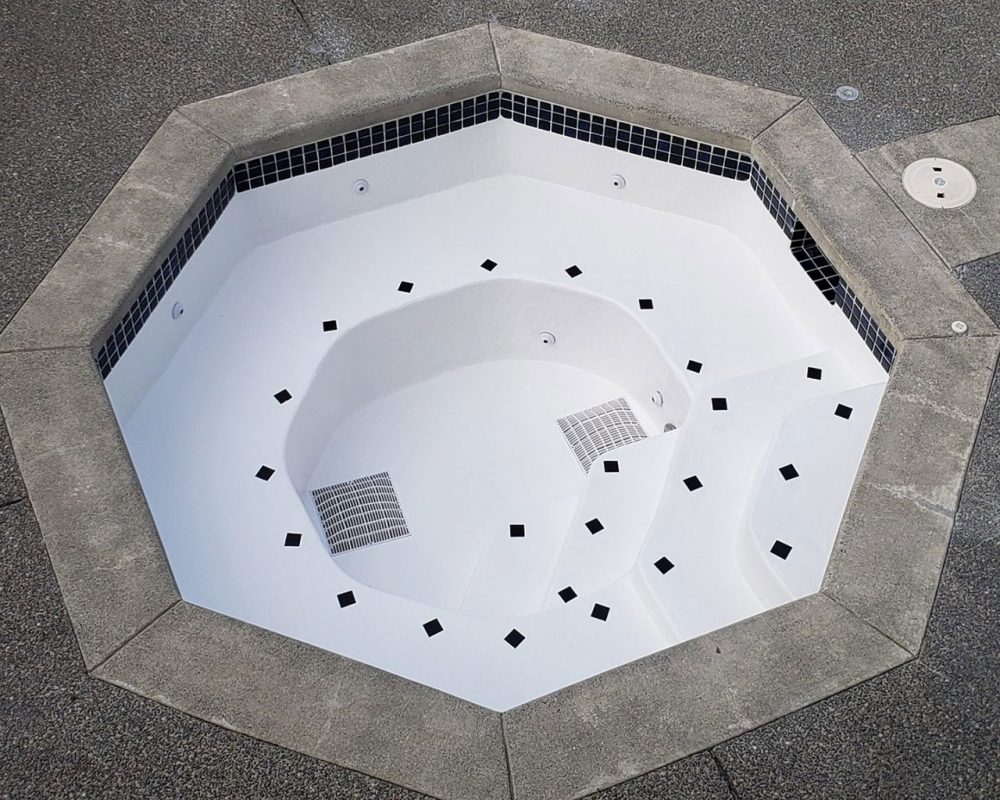
Glasscoat vs Pebble Tec in Las Vegas NV
Corrosion Resistance: Pebble Tec’s resistance to corrosion is lessened as it is unable to prevent water from attacking the surface while Glasscoat surface is unaffected by pool water and chemicals making it corrosion resistant.
Materials: Pebble Tec employs a basic cement binder with stone aggregate. Glasscoat uses a high-performance glass-reinforced polymer that boasts of a 30-year track record.
Structural Strength: Pebble Tec is not a structural material since it leaks and will readily crack while Glasscoat repairs cracks and has crack-bridging properties with glass fiber acting as reinforcement.
Black Algae and Rebar Stains: The coarse texture of Pebble Tec promotes algae growth causing rebar stains to appear while the smooth surface of Glasscoat inhibits algae penetration and prevents rebar stains to appear.
Life Expectancy: The corrosion resistance of Glasscoat ensures at least 20 years of service life that is verified under field conditions compared to Pebble Tec which deteriorates rapidly since it is not resistant to corrosion and its basic cement binder with stone aggregate causes breakdown to become inevitable.
Commercial Pool and Commercial Spa Use: Glasscoat is most widely used for commercial pools and often used for commercial spas as well since it does not deteriorate. Pebble Tec is not recommended for commercial use because of its drawbacks recognized by facility owners nor in commercial spas for its rapid deterioration rate in hot spas.
Warranty: Material Performance Warranty is provided for Glasscoat which addresses long-term surface issues. No performance warranty is offered for Pebble Tec on the other hand for its inherently-flawed material.
With this information you now have at your disposal, it is now easier to make an informed decision regarding which finish is best suited for your swimming pool repair in the Las Vegas NV area. Call us at (702) 710 5883 and receive a free, no-obligation quote.
Frequently Asked Questions
1. CONCRETE
Concrete is one of your standard basic pool finish options. It has been tried and proven, and it is the most cost-effective solution. You’ll have more color options if you use a tint, and completing your pool in concrete will cut down on building time. If repairs are required, concrete pools are the least expensive to repair.
However, there are several concerns about concrete that you should be aware of. Concrete is permeable by nature. It may also need to be resurfaced and grow rather rough over time.
2. AGGREGATE PLASTER
Aggregate plaster is a step above a normal concrete finish. To create a more intriguing look, your pool professional will incorporate quartz, granite, or pebbles into the concrete. When properly polished, it will have a smooth, flat texture.
An aggregate plaster finish lasts longer because it is more resistant to chemicals and, like concrete, is relatively easy to repair.
3. TILE
Pools with stone and glass tile finishes are becoming increasingly fashionable. This is because pools are now as much decorative features of the yard as they are functional swimming areas. A tile provides a modern look with an infinite number of color combinations, giving you the most options for all finishes.
Tiles are also far more durable and require far less upkeep than concrete or aggregate plaster. However, this comes at a cost, with the most expensive choice being a totally tiled pool. It also takes more time to install. The other disadvantage of tiling your pool is that it is the most difficult to maintain. As a result, it is critical that you investigate the most effective adhesive technique for maintaining the pool finish.
Plaster has been used for decades as one of the most popular pool resurfacing materials. Despite its hardness, the surface is smooth and white. It is also available in several hues. All of these characteristics contribute to the pool’s water being immaculate, blue, and clean. Click HERE for additional information.
Again, if water chemistry is correctly controlled, quartz can endure longer than the norm. Pebble finishes, when paired with modified cement, have a lifespan of 15 years or more. This is the most long-lasting cement-based pool finish.
